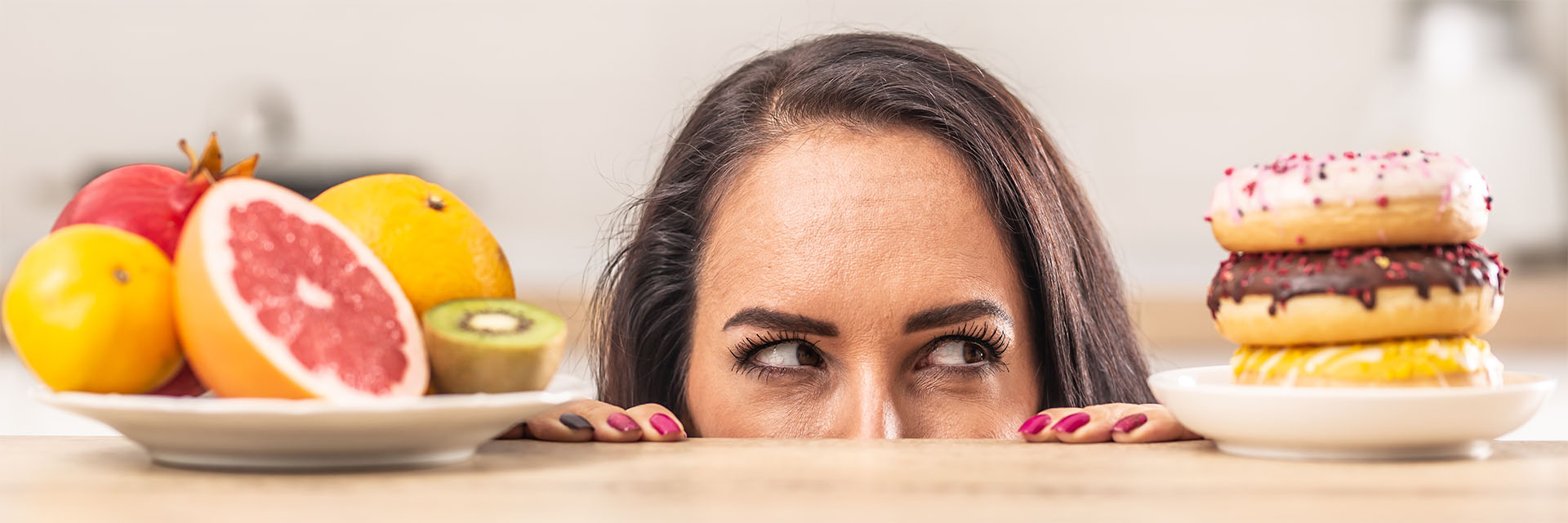
- 0 Comments
- Sophia Ziane
Food Cravings: what is it? What are its Causes? And how to handle the craving episode?
Did you before thought about a special food and felt that you can taste it and smell just by thinking about, this is called a food craving. An intense desire to consume a particular food.
In this article you will understand the difference between hunger and food craving episodes? what are the main causes of food cravings and how can we limit their occurrence.
Hunger Vs Food craving
Food cravings can be satisfied by eating a specific food (the one that provoked the food cravings). However, hunger is the body showing a food restriction or an energy need, and it can be alleviated by any type of food.
Scientists made several surveys studies in north America, Europe and some countries in Asia and Africa and concluded that the most craved foods have high energy density and fat content.
- Chocolate
- Pizza
- Salty Snacks.
- Ice cream.
- Other desserts and sweets.
- Meat and Chicken.
- Rice (Japan)
- Savoury traditional foods rather than sweets (Egypt).
The main causes of food cravings
The true picture of food craving is complex and there are numerous theories about it. The underlying causes of craving may be multiple — including psychological, conditioning, emotional, sensory and food imaging, to name a few.
- Food restriction or severe dieting
The consumption of monotonous, unbalanced diet with calories restriction and lack of diversity will increase the frequency of craving episodes.
- Easiness to obtain food.
Nowadays with the overwhelming development of the food industry, the marketing with mainly fast-food advertising in a very tempting way, the possibility to order your favourite food in few minutes on the phone from your couch all these life facilities made the human weaker and more incapable to resist his craving episodes.
- Emotional eating or mood changes
As we all know we don’t eat only to satisfy our bodies needs in energy and nutrients but also for emotional reasons. Imagine having a really bad and long day at work or university and then having this idea that if you eat burger, chocolate, or cheese you will have the comfort you need? I bet this happened to many of us before. So, yes depression, anxiety and other psychological disorders can influence the occurrence of cravings.
- Environment effect and eating habits:
When someone sees a yellow M, directly a big mac thought emerge in our consciousness, other than that, creating an affective, happy, and appetizing memory towards a place, a person and/or food drives the brain to make a direct connection and an automatic process in the future. Also, as Dr. J OHN W. APOLZAN, a nutrition scientist said: You don’t crave food you never ate. This is how good memories; food eating habits and environment can affect your voracity.
- Gender and Age:
Research about food cravings shows that women are more likely to experience cravings specially during pregnancy premenstrual periods (hormonal changes).
The urgency to eat specific foods declines with age, this may be related to the reduction of the sensory functions, especially taste and smell.
How to limit food cravings episodes
Before giving few techniques on how to limit the pinning for food episodes, as a nutrition scientist I would like to spotlight the fact that this periodic food cravings are not abnormal and there are powerful biological and environmental forces that trigger us to eat. However, when it is very frequent and intense it can be associated to several pathologies like overweight and binge eating disorder.
Now here are some techniques that you can use to control the food cravings:
- Try to avoid situations, people or places that triggers you to eat you can avoid checking the sweets or pastries aisle in the supermarket!
- Follow a soft realistic diet that allow you to eat without restriction, don’t sacrifice the eating for pleasure that is important for mental balance.
- If you do lapse, be kind to yourself and use it as a literacy occasion. You aren’t a failure, and you have no reason to feel shamefaced.
- Cut back on artificial sweeteners. Research shows that artificial sweeteners such as sucralose and aspartame may increase your cravings for sugar.
- Try the practicle 5 Ds rule: • Delay– (Wait ten minutes before succumbing to the temptation) Distract– Concentrate on something else • Distance– keep those foods out of sight. Determine- Think about how much you really want to eat the food you are craving• Decide- Know how much to eat; if you choose to eat something you crave, remember to enjoy it!
If you want to dive deeper in this topic check out the scientific articles cited below ↓
Hunger: Why Do We Have Cravings and What Can We Do about Them?
The Psychology of Food Cravings: the Role of Food Deprivation – PMC (nih.gov)
Food craving: an overview (researchgate.net)

The Art and Science of Self-Weighing: Master the scale
Probiotics: Human's invisible friends or another marketing strategy?
